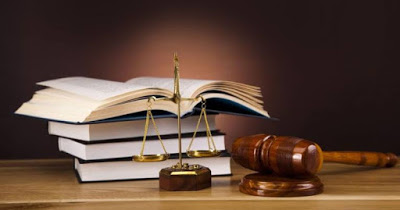
I can distill via the letter of transfer already filled and served, and the proceedings in court on the 18th of December 2018 that the court is towing the lane of being biased and below are authorities to that effect.
KASHAMU v. AG OF THE FRN
(2013) LPELR-22357(CA)
ISSUE
“BIAS” : Meaning of “bias”
PRINCIPLE
“By the Black’s Law Dictionary 8th Edition, page 171, bias means inclination, prejudice or predilection. It may be actual, implied or judicial. This concept of bias has also been judicially defined and/or explained. According to Ayoola, JSC in Kenon v. Tekam (2001) 14 NWLR (Pt. 732) 12 at 41 – 42, bias is opinion or feeling in favour of one side in a dispute or argument resulting in the likelihood that the judge so influenced will be unable to hold an even scale. In Womiloju v. Anibire (2010) All FWLR (Pt. 529) 1002 at 1013 – 1014, Muhammed, JSC explained the concept of bias as follows: ” ‘Bias’ generally is that instinct which causes the mind to incline toward a particular subject or course. When a judge appears to give more favour or consideration to one of the parties before him either in his utterances, contention or action which is capable of perverting the cause of justice or where fair hearing cannot be said to take place, all in favour of the party he supports covertly or overtly, then an allegation of bias against him can be grounded. That of course is a judicial bias. But where a trial has been conducted in which the authority of the court has fairly been exercised in consistence with the fundamental principles of justice embraced within the conception of the process of law then there is said to be a fair hearing.” Per ABOKI, J.C.A. (Pp. 57-58, paras. A-A)
CITED CASES
Kenon v. Tekam (2001) 14 NWLR (Pt. 732) 12 at 41 – 42.
*There can also be said to exist a real likelihood of bias in the conduct of the proceedings*
I am also relying on the case of CUSTOMARY COURT OF EDO STATE V. AGUELE & ORS.
(2006) LPELR-7627(CA)
ISSUE
“BIAS’ : Definition of “bias”
PRINCIPLE
“Bias has been defined in Denge v. Ndakwoji (1992) 1 NWLR (Pt. 216) 221 at 233 – 234 per Ndoma-Egba, JCA to mean; “The term real likelihood of bias may not be capable of exact definition since circumstances giving rise to it may vary from case to case, but it must mean at least ‘a substantial possibility of bias’. This may arise because of personal attitudes and relationships such as personal hostility, personal friendship, family relationship, employer relationship, partisan in relation to the issues at stake and a whole range host of other circumstance of a real likelihood of bias may be drawn….. Bias or likelihood of it covers a wide range of circumstances. It may arise if a judge either explicitly or implicitly indicates partisanship in a cause or matter before him by expressing hostile opinion favourable to one party in the controversy he has a duty to settle or has unduly earlier expressed his views about the merits or demerits of a case committed to him for fair hearing and determination. This may amount to the prejudgment of the matter rendering the judge inadequate in the proving minds and eyes of the public, to proceed in hearing and determination on the controversy between the parties concerned on the merits.” Per BULKACHUWA, J.C.A. (Pp.27-28, Paras.C-B)
CITED CASES
Denge v. Ndakwoji (1992) 1 NWLR (Pt. 216) 221 at 233 – 234.
We are also not ignorant of the fact that the Judge had been in the past working for the efcc before arrival at the bench. Which also embolden one with the case of
KENON & ORS V. TEKAM & ORS
(2001)LPELR-1688(SC)
ISSUE
“BIAS”: Meaning of “bias”
PRINCIPLE
“Bias in its ordinary meaning is opinion or feeling in favour of one side in a dispute or argument resulting in the likelihood that the Judge so influenced will be unable to hold an even scale.” Per Ayoola, J.S.C. (P. 29, paras. C-D)…..
